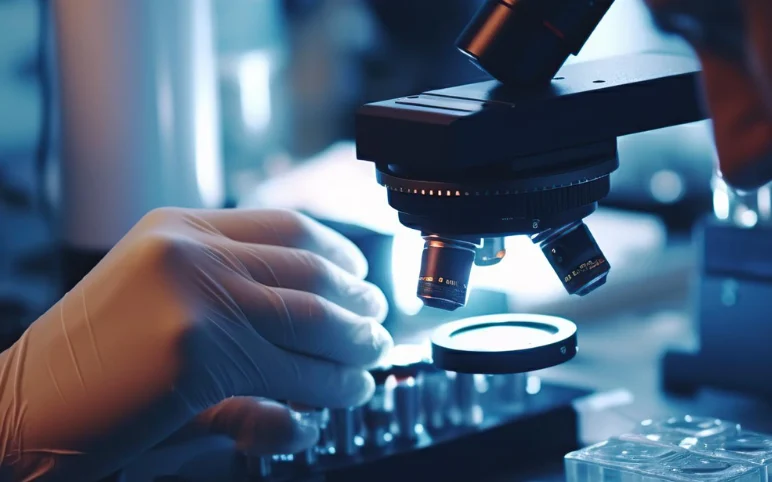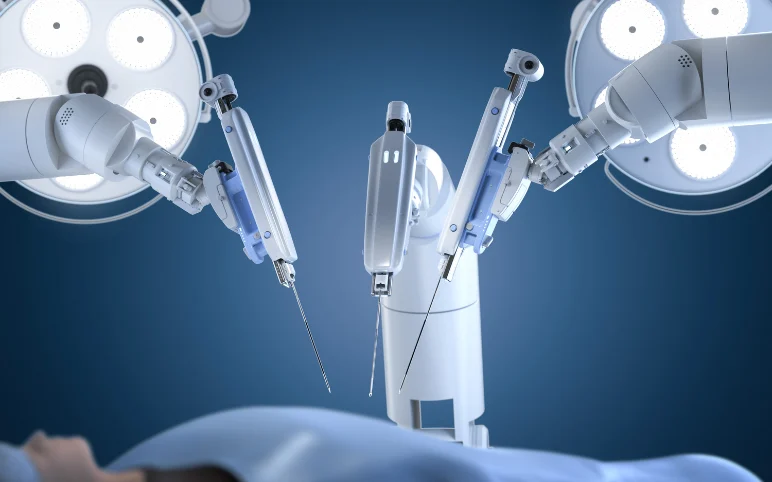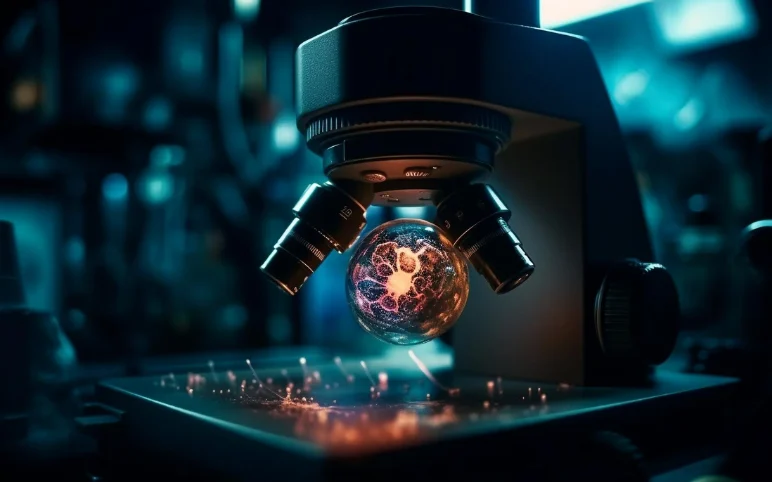Profound Medical and Siemens Entered Into a Collaboration; CardiAI and Carleton University Forged an Innovative Partnership; BrainMD Launched Revolutionary Smart Collagen Supplements; FDA Approved Seastar’s Quelimmune Device; Nebraska-developed Surgical Robot Received FDA Approval; Catheter Precision Presentated First Clinical Data on LockeT
Feb 29, 2024
Table of Contents
Profound Medical and Siemens Healthineers Entered Into a Collaboration on Ultrasound Ablation
On February 27, 2024, Profound Medical entered into a non-exclusive agreement with Siemens Healthineers. The objective of the agreement was to establish the foundation for Profound’s commencement of marketing a comprehensive therapeutic solution. The companies seek to integrate the Profound TULSA-PRO system with the Siemens Magnetom Free Max magnetic resonance (MR) scanner.
TULSA-PRO executes the company’s transurethral ultrasound ablation (TULSA) procedure, utilizing real-time MR guidance for accuracy in eliminating specific prostate tissue via sound absorption technology. This system empowers surgeons to ablate either whole or partial prostate tissue in patients across various risk levels of prostate cancer (low, intermediate, or high). Additionally, it addresses benign prostatic hyperplasia (BPH) and caters to prostate cancer patients under active surveillance who seek both cancer treatment and relief from BPH symptoms.
Downloads
Click Here To Get the Article in PDF
Recent Articles
- FDA Grants Priority Review to Merck’s Application for KEYTRUDA Plus Padcev; Roche and Carmot Ther...
- FDA Approves LEQEMBI IV Dosing for Early Alzheimer’s; Vanda Accepts FDA Hearing on Tradipitant fo...
- GSK Receives FDA Fast Track Designation for Bepirovirsen; Gilead to Acquire CymaBay Therapeutics;...
- Smart Inhalers: Redefining Respiratory Care with Technology and Data
- AUCATZYL Approved for R/R B-ALL; FDA Accepts NDA for Unicycive’s Oxylanthanum Carbonate; AstraZen...
Magnetom Free Max expands the scope of MR clinical applications and provides the inherent advantages of a mid-field MR scanner. Additionally, it simplifies MR scanning for patients who are larger or experience claustrophobia, thereby improving the overall patient experience.
Siemens Healthineers VP of Global Marketing & Sales for MR, Donald Hardie, said, “The companies hope to advance an integrated, MRI-centric approach for prostate cancers worldwide. Our collaboration with Profound underscores our commitment to leveraging cutting-edge technologies such as TULSA-PRO to make a difference in prostate cancer therapy,” Hardie said. “Magnetom Free Max has already brought MR to new places, varying from orthopedic centers to rural hospitals, where patients need MR imaging most.”
As per DelveInsight, the Ablation Devices Market is estimated to grow at a CAGR of 11.65% during the forecast period from 2024 to 2030. Factors such as the increasing incidence of cancers such as liver cancer, the rising prevalence of chronic pains such as musculoskeletal pains, the rising prevalence of cardiac arrhythmias such as atrial fibrillation, and the rising regulatory approvals for technologically advanced ablation devices. Therefore, the market for ablation devices is estimated to grow at a significant CAGR during the forecast period from 2024 to 2030.
CardiAI and Carleton University Forged an Innovative Partnership to Revolutionize Medical Diagnosis
On February 27, 2024, CardiAI, entered into a partnership with Carleton University’s Faculty of Engineering and Design. The partnership marks a notable milestone in the progression of medical diagnostics by integrating Electrolyte Gated-FET (EG-FET) biosensor technology. CardiAI and Carleton collaborated in order to leverage EG-FET biosensors in detecting crucial biomarkers present in saliva and whole blood. This partnership aims to transform point-of-care diagnostics and open avenues for extending the technology’s utility to a wider spectrum of health conditions.
“We are thrilled to embark on this transformative journey with Carleton University,” said Dr. Anmol S. Kapoor, Cardiologist and CEO of CardiAI. “The marriage of CardiAI’s expertise in biotechnology and Carleton’s prowess in electronics engineering creates a synergy that holds immense promise for the future of medical diagnostics. Together, we are committed to advancing technology that not only addresses current healthcare challenges but also opens new doors for innovation and improved patient outcomes.”
This collaboration exemplifies the power of interdisciplinary partnerships in driving scientific progress,” said Dr. Ravi Prakash, Associate Professor in Carleton’s Department of Electronics and head of Carleton’s Organic Sensors and Devices Laboratory. “Our department is excited to contribute to the development of cutting-edge biosensor technology that has the potential to redefine point-of-care diagnostics. By combining our research strengths, we aim to make a lasting impact on healthcare accessibility and usher in a new era of medical innovation.”
As per DelveInsight, the Point of Care Diagnostics Market is estimated to grow at a CAGR of 6.61% during the forecast period from 2024 to 2030. The demand for point-of-care diagnostics is primarily being boosted by the increasing patient population suffering from various lifestyle disorders such as diabetes and cardiovascular diseases among others, the rising prevalence of infectious diseases, growing awareness regarding health and disease-free life, and innovation in product development among others, thereby contributing to the overall growth of the point of care diagnostics market during the forecast period from 2024-2030.
On February 22, 2024, BrainMD, the foremost provider of top-tier brain health supplements, introduced their groundbreaking new product-smart Collagen.
Apart from traditional collagen products, Smart Collagen features an unparalleled concentration of two bioactive dipeptides – proline-hydroxyproline (PO) and hydroxyproline-glycine (OG) – at levels 30 times higher than standard collagen supplements. Extensive clinical research validates the effectiveness of these dipeptides in improving skin elasticity, diminishing wrinkles, and supporting joint health. Notably, these collagen peptides also deliver significant advantages for cognitive function, making Smart Collagen a standout choice for promoting brain health and overall well-being.
Smart Collagen is specially designed for effortless integration into daily routine without sacrificing flavor. Whether blended into smoothies, stirred into morning coffee, or incorporated into meals, it seamlessly imparts all the benefits of premium collagen in a flavorless powder form that seamlessly blends into any food or beverage.
“We’re beyond excited to bring Smart Collagen into the lives of our customers,” expressed Dr. Amen. “If you’re looking for a collagen supplement, choose the one that’s backed by science and delivers up to 30x the level of standard collagen peptides: Smart Collagen.”
According to DelveInsight, the Dietary Supplements Market is estimated to grow at a CAGR 5.5 % during the forecast period from 2024 to 2030. The Dietary supplements market is slated to witness positive growth due to the increasingly sedentary lifestyle of people globally, improper diet, rising prevalence of anemia among women, lack of exercise, rising awareness among people to lead a healthy lifestyle, along with the rising advancements in delivering quality and substance-free Dietary supplements across the globe, resulting in appreciable revenue growth of the dietary supplements market during the forecast period (2024-2030).
Seastar Received FDA Approval for First Quelimmune Device for Pediatric AKI
On February 22, 2024, SeaStar Medical Holding Corporation, a medical device company, announced that its Selective Cytopheretic Device (SCD) Pediatric (SCD-PED) had received Humanitarian Device Exemption (HDE) approval by the U.S. Food and Drug Administration (FDA). This authorization permits the marketing of the SCD-PED for pediatric patients with acute kidney injury (AKI) caused from sepsis, weighing at least 10 kilograms, and necessitating kidney replacement therapy (KRT).
The SCD-PED marks the debut product in SeaStar Medical’s Quelimmune product line. Eric Schlorff, CEO of SeaStar Medical, stated that this FDA approval represents a major milestone for the company and introduces a fresh therapeutic option for critically ill children with AKI, a condition associated with a high mortality rate in pediatric intensive care units.
According to clinical studies the Quelimmune pediatric device has the potential to decrease mortality rates and reduce the need for dialysis in affected children. The FDA’s decision was based on clinical evidence showcasing the device’s safety and potential benefits in this patient demographic. The studies documented a 77% decrease in mortality and absence of dialysis dependency at 60 days following treatment.
The Quelimmune technology is specially designed to selectively address and regulate proinflammatory neutrophils and monocytes during Continuous Kidney Replacement Therapy (CKRT), with the goal of mitigating the hyperinflammatory condition that may result in organ failure and mortality among critically ill patients. SeaStar Medical is concurrently conducting the NEUTRALIZE-AKI clinical trial to assess the device’s efficacy in the adult Acute Kidney Injury (AKI) population while also exploring additional potential applications.
According to DelveInsight, the Continuous Renal Replacement Therapy Market was valued at USD 1.25 billion in 2023, growing at a CAGR of 7.39% during the forecast period from 2024 to 2030, to reach USD 1.92 billion by 2030. The demand for CRRT machines is predominantly attributed to the rise in the prevalence of acute renal failure or Acute Kidney Injury (AKI) across the globe, the growing burden of ICU patients with AKI along with an increase in the incidence of sepsis, significant technological advancements in the product line. The clinical advantage of CRRT over intermittent blood purification systems is also a prominent driving factor for the CRRT machines market.
Nebraska-developed Surgical Robot Received FDA Approval
On February 27, 2024, MIRA — Miniaturized In Vivo Robotic Assistant, developed by University of Nebraska received marketing authorization from the U.S. Food and Drug Administration. The announcement of approval was done by Virtual Incision, a private company dedicated for the development of the MIRA robot, paving the path for its commercial utilization in adult patients undergoing colectomy procedures.
Under the guidance of UNL’s Shane Farritor, Lederer Professor of Engineering and a co-founder of Virtual Incision, the device was created. It stands as the world’s premier miniaturized robotic-assisted surgery device.
Farritor, alongside Dr. Dmitry Oleynikov, formerly a professor of surgery at the University of Nebraska Medical Center, initiated the development of the device in 2001. In 2006, they established Virtual Incision. Additionally, Virtual Incision has evolved with the support of over $100 million in venture capital, including a notable $30 million Series C round of funding secured in the autumn.
According to DelveInsight, the Surgical Robotic System Market was valued at USD 5.02 billion in 2023, growing at a CAGR of 11.50% during the forecast period from 2024 to 2030 to reach USD 9.64 billion by 2030. The demand for Surgical Robotic Systems is witnessing a surge due to increasing surgical procedures which can be attributed to various factors such as the increasing geriatric population who form a big part of at-risk population for prostate cancer, valvular diseases, endometriosis among other diseases, the growing need for robot-assisted surgery systems due to the growing inclination towards minimally invasive surgical approaches, and the innovation in product development which is paving the way for miniaturized surgical robots ultimately contributing in the overall growth of the Surgical Robotic Systems market during the forecast period from 2024-2030.
Catheter Precision, Inc. Announced the Presentation of the First Clinical Data on LockeT
On February 22, 2024, Catheter Precision, Inc., a medical device company headquartered in the United States with a focus on innovative electrophysiology products, announced that the initial findings from the inaugural LockeT study would be presented at the Western Atrial Fibrillation Symposium.
The Western Afib symposium is a globally renowned event dedicated to enhancing outcomes on a global scale, showcasing experts from the atrial fibrillation community. Led by esteemed faculty members of international acclaim, the symposium offers educational sessions covering the latest advancements in diagnosing and treating atrial fibrillation, along with focused roundtable discussions on pertinent topics.
LockeT, developed by Catheter Precision, is a suture retention device designed to aid in achieving hemostasis following percutaneous venous punctures. Classified as a Class I medical device, LockeT is registered with the FDA.
Catheter Precision’s CEO, David Jenkins, said, “We are very excited to have the initial LockeT clinical data available to share with physicians. This study demonstrates that LockeT is not only safe and effective in achieving hemostasis but that it provides additional benefits of cost savings and same-day hospital discharge.”
According to DelveInsight the Surgical Sutures Market was valued at USD 3.56 billion in 2023, growing at a CAGR of 6.64% during the forecast period from 2024 to 2030, to reach USD 5.24 billion by 2030. The increase in demand for surgical sutures is predominantly attributed to the rise in the volume of surgeries worldwide. Moreover, an increase in various diseases such as arthritis, spinal deformities, and cancers, among others which require surgery for their management, a rise in non-fatal injuries, growing approval of products, and launches of various advanced surgical sutures are anticipated to bolster the demand for these sutures thereby leading to an increase in the global market for surgical sutures during the forecast period.
Downloads
Article in PDF
Recent Articles
- 7 Game-Changing Major Depressive Disorder Drugs in Development
- B. Braun’s Introcan Safety 2 IV Catheter; Everly Health’s At-Home Collection Kidney Health Test; ...
- Philips Teamed with SyntheticMR; BioPhotas’s Celluma Light Therapy; Boston Scientific’s AGE...
- Solis Mammography’s Acquisition of MUSIC Imaging Center; Nikon’s SI-PH Phase Condenser Accessory ...
- FDA Grants Priority Review to Merck’s Application for KEYTRUDA Plus Padcev; Roche and Carmot Ther...




